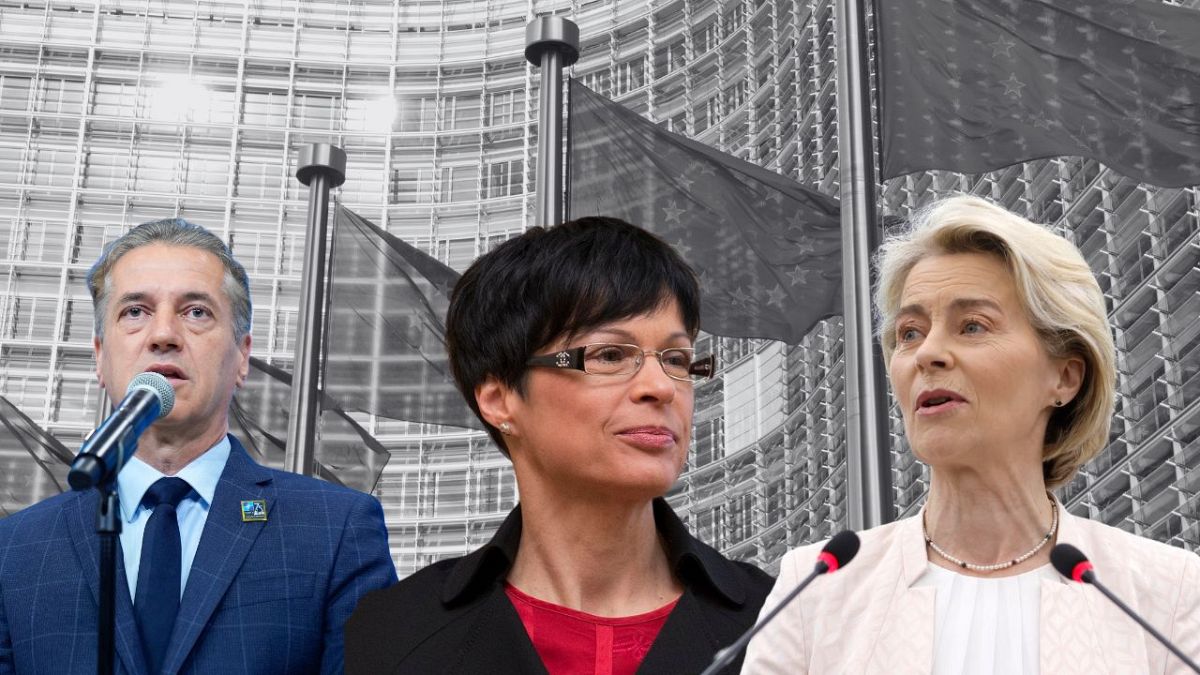The nomination of Marta Kos as Slovenia’s next EU Commissioner has sparked controversy, with allegations of links to the former Yugoslav secret services raised by the head of Slovenia’s European People’s Party (EPP) delegation in the European Parliament. EPP MEP Romana Tomc has called Kos “completely unacceptable” and “problematic” due to these alleged ties. However, Kos has refuted these accusations in a statement to Euronews, stating that she was vetted by the security services in Germany and Switzerland before becoming Ambassador and receiving approval without any issues.
Kos defended her credentials, highlighting her previous roles as Director of the Office of the Government of the Republic of Slovenia for Communication, Government Spokesperson, Vice President of the Chamber of Commerce and Industry of Slovenia, and Ambassador to Germany and Switzerland. She emphasized that her extensive career experience and expertise should be the primary qualifications for the EU Commissioner role, rather than her gender. Kos also pointed out her recognition as Ambassador of the Year in 2016 and receiving honors for her work, contrary to claims that she was nominated solely because she is a woman.
The dispute over Kos’s nomination has led to a political storm in Slovenia, with the last-minute change of Commissioner nominees causing a delay in President Ursula von der Leyen’s portfolio reveal. The opposition Slovenian Democratic Party, to which Tomc belongs, has accused PM Robert Golob of caving to von der Leyen’s demands by selecting Kos over the originally proposed Tomaž Vesel. Tomc claimed that Vesel had a better chance of passing the European Parliament’s scrutiny, but the decision to send a woman instead has created further tensions between political factions in Slovenia.
With the requirement for Kos to attend a hearing of the Slovenian National Assembly’s EU Affairs Committee, originally scheduled for Friday, the situation remains uncertain. The accusations against Kos and the political controversy surrounding her nomination have raised questions about the selection process and the criteria used for choosing EU Commissioners. The conflict between PM Golob and the opposition parties, particularly the Slovenian Democratic Party, adds another layer of complexity to the situation.
Despite the backlash and accusations, Kos remains firm in defending her reputation and qualifications for the EU Commissioner role. Her statement to Euronews highlights her extensive experience and achievements in various positions throughout her career, disputing claims of lacking executive experience or being solely nominated based on her gender. The ongoing debate over Kos’s nomination reflects broader concerns about transparency and accountability in the selection process for EU Commissioners.
As the political storm in Slovenia continues to unfold, the fate of Marta Kos’s nomination as EU Commissioner remains uncertain. The allegations of secret police links and the subsequent rebuttal by Kos have intensified the controversy surrounding her selection. With the need for Kos to undergo a hearing before the Slovenian National Assembly’s EU Affairs Committee, the outcome of the nomination process and the impact on Slovenia’s relationship with the EU are yet to be determined.

























